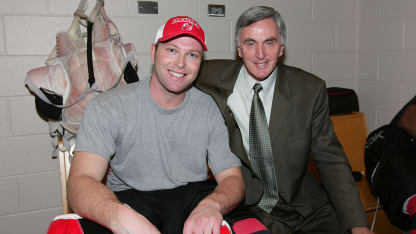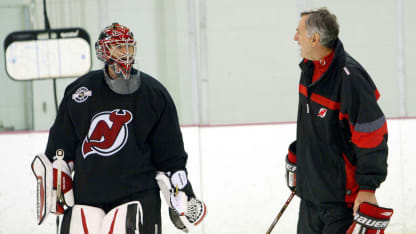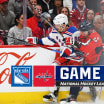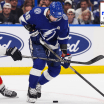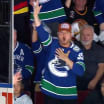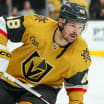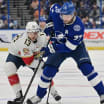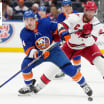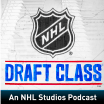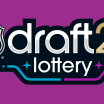Jacques Caron will always remember the friendly exchanges he had with Baseball Hall of Famer Yogi Berra.
"Yogi was my best friend and we talked about different things ... the mental aspect of sports," said Caron, the former NHL goalie and longtime goalie coach for the New Jersey Devils.
"Yogi said he could see himself hitting the ball before it (crossed the plate) and it didn't matter what the pitch was; it was instinctive," Caron said of the late New York Yankees catcher. "He knew he would hit whatever was thrown because his subconscious told him. It's like a goalie. If I'm here and I feel I'm stopping it, I'm not thinking if he's shooting from here or there, I'm stopping it in my mind."
The 79-year-old said it was that instinct that enabled Hockey Hall of Fame goalie Martin Brodeur to persevere and excel at the position for so long. Brodeur played 22 seasons with the Devils and St. Louis Blues before announcing his retirement on Jan. 15, 2015, at the age of 42. He won three Stanley Cup championships (1995, 2000, 2003) and set a multitude of NHL records at the position during his 21 seasons with the Devils and Caron as his goalie coach.
Caron joined the Devils in August 1993, just in time for Brodeur's rookie season, and was goalie coach there for 20 seasons. He also worked in a special assignment role for the Toronto Maple Leafs from February 2017 to June 2018.
Caron's professional playing career began in 1959-60 and spanned 18 years, including stints with the Los Angeles Kings, Blues and Vancouver Canucks from 1967-68 until 1973-74.
Here are Five Questions with … Jacques Caron:
